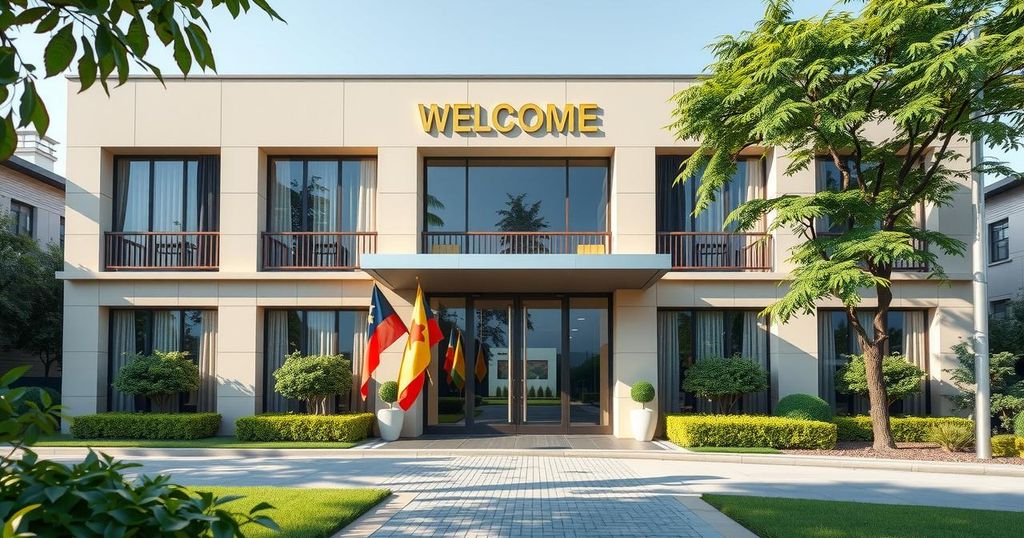Germany has reopened its embassy in Damascus after 13 years, with Foreign Minister Annalena Baerbock leading the initiative. This move aligns with evolving diplomatic relations in the EU, as nations reassess their positions in Syria. Baerbock highlighted the potential for a renewed political relationship between Germany and Syria, especially amid shifts in power dynamics following HTS’s control of Damascus.
Germany has officially reopened its embassy in Damascus after 13 years of closure, a response to the ongoing developments in Syria. Foreign Minister Annalena Baerbock inaugurated the embassy during her visit to the capital, confirming Germany’s role as a significant player within the European Union. While Germany’s absence spanned over a decade, other EU nations such as Italy and Spain had previously resumed operations, indicating a gradual shift in diplomatic relations with Syria.
Foreign Minister Baerbock emphasized the importance of her visit, stating that it signifies a potential for “a political new beginning between Europe and Syria, between Germany and Syria.” This remark underlines Germany’s intent to foster renewed diplomatic engagement in the region. The situation in Syria continues to evolve, particularly following the control of Damascus by militants, led by Hay’at Tahrir al-Sham (HTS), which has significantly changed the political landscape.
HTS announced an end to the Assad regime with a surprise offensive from their safe haven in northwestern Syria, which dramatically resulted in their march onto the capital within two weeks. The leader of HTS, Abu Muhammad Jolani, has since declared himself as the interim president of Syria, which raises questions about the future political order.
The reopening of the German embassy in Syria marks a significant diplomatic shift following over a decade of absence. It reflects Germany’s willingness to engage with the changing political dynamics in the region, particularly after the rise of HTS. This development may lead to new political possibilities between Europe and Syria, which is critical as the region continues to navigate its complex crisis.
Original Source: en.mehrnews.com






